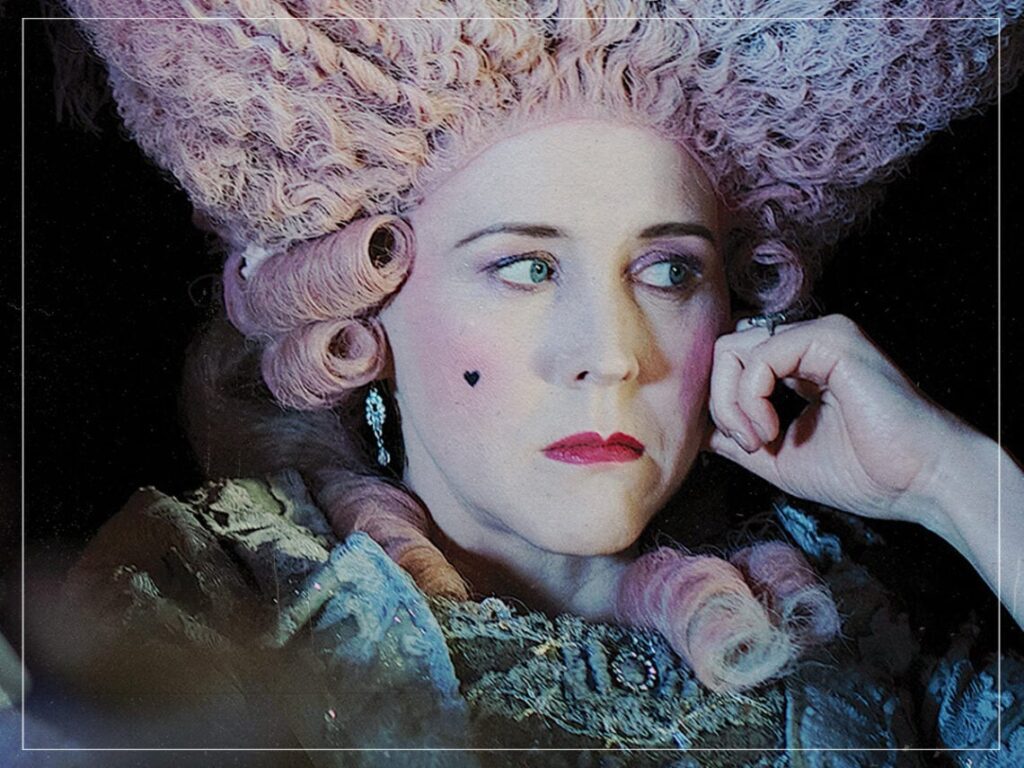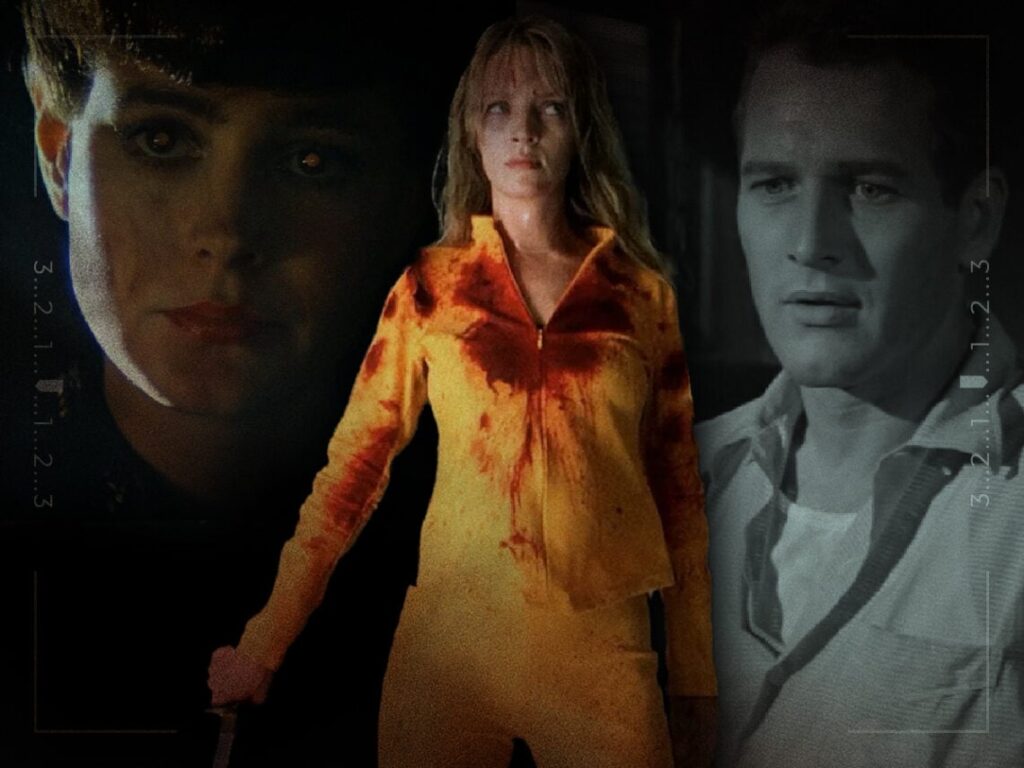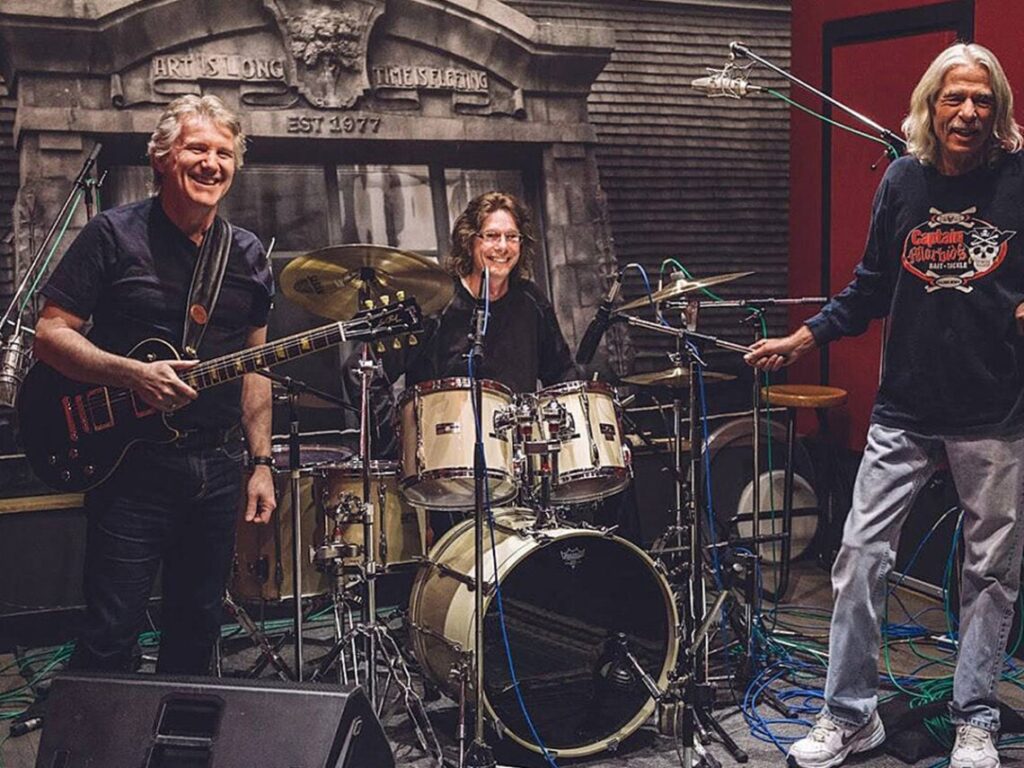Alice Lowe’s ‘Timestalker’ is the bratty, pink-drenched version of Monty Python that meets the moment
 Posted On
Posted On
(Credits: Far Out / Vertigo Releasing)
Perhaps you know a little something about infatuation. At some point in our lives, most of us are possessed by a disproportionately intense attraction to a person we barely know. Maybe it’s the classmate you passed in the hallway every day as a teenager or the person you went on one date with who never texted back. Maybe it’s a pop star who you’re convinced is singing directly to you or the actor from your favourite film who you’re convinced would fall madly in love with you if only you could meet in person.
It’s a uniquely intoxicating experience, a preoccupation that hinges on mystery and the ability to project all your deepest desires onto a blank slate. In that sense, infatuation is one of the most grandiose forms of narcissism, the opportunity to languish in the depths of your own fantasies without the threat of a reality check. Alice Lowe’s Timestalker centres on this aspect. Instead of romanticising infatuation the way Hollywood so often does, she expands it into one long, century-hopping punchline. Along the way, there are dick jokes, a parody of 1980s music videos, and lots and lots of pink. It’s Monty Python made from a fresh perspective, a film that is irreverent, inventive, absurdist, and satirical, with a razor-sharp creative vision at its core.
The story centres on a woman named Agnes who appears in various iterations in 1688, 1793, 1847, 1980, and 2117 to pursue a man named Alex (Aneurin Barnard), who she is convinced is her true love. The only trouble is that Alex has absolutely no interest in her whatsoever and always seems to indirectly lead to her gruesome demise. Whether he’s a preacher, a pop star, or a member of the riot police, Alex is a shallow narcissist obsessed with fame and power. Agnes isn’t much different. She’s delusional, self-absorbed, and utterly indifferent to the only person who loves her, her best friend Meg (Tanya Reynolds).
The premise of Timestalker is a good one, but it could easily have been a one-sentence joke that fizzled long before the 90-minute mark. Luckily, the execution outperforms the concept at every turn. Throughout the film, Agnes falls for Alex at first sight, struck by the overwhelming sensation that she’s seen him before and that they must be together on a cosmic level. These first encounters mercilessly skewer the trope of the meet-cute.
In the 1793 vignette, Agnes is a wealthy noblewoman who is on her way to get an even larger wig (powder pink and shaped like a heart, of course) when she spies a handsome bandit on the side of the road. He’s peeing on a crop of mushrooms, and the sun glistens through the golden stream as Agnes gazes in rapturous silence.
Refreshingly juvenile humour pervades the film, not just the meet-cutes. At one point, Agnes lounges despondently on a chaise long and moans to her maid, Meg, about feeling that there is something missing inside her. Meg produces a dildo. In the 1980 section, Meg, now playing Agnes’ exasperated friend, tells her, “Don’t expect anything from me. Karma’s a bitch.” “Yeah, well, so are you,” Agnes responds without missing a beat.
The parallels to Monty Python are everywhere. Each vignette unfolds in a similar fashion to the sketches in Monty Python’s Flying Circus, though instead of refusing to end with a punchline, most of them end with the same one: Agnes’ gory death. Like Python, she satirises British culture, skewering everything from the prevalence of STDs among 18th-century aristocracy to the ludicrously over-produced music videos of the 1980s, right down to out-of-sync lip movements.
Unlike Monty Python, however, Lowe is coming at the story from a female perspective. There are dark jokes about marital rape, maternal ambivalence, lesbians, and stalking. In the same way that The Substance proved (for anyone who might have had doubts) that body horror is a natural genre for a female filmmaker, Timestalker proves that farcical humour is similarly well-suited to the absurdities of being female.
For all its silliness, the film tackles a universal topic with surprising incisiveness and originality. Romantic obsession is all around us all the time. In the real world, it is often a heady inconvenience that leads to an inevitable letdown. In popular culture, it tends to go the opposite direction, leading to that all-too-evasive conclusion of “happily ever after.” Lowe takes romantic exaggeration and goes in the other direction, showcasing a bratty, self-involved protagonist who spends centuries pursuing a vapid, self-absorbed poser. You might not want to see yourself in Agnes, but we’ve all been her at some point in our lives, whether we’re willing to admit it or not.
[embedded content]
Related Topics


